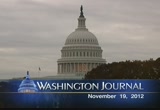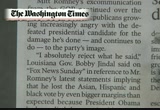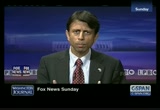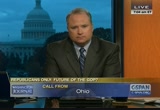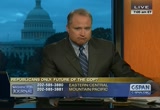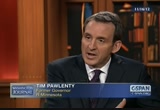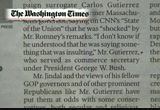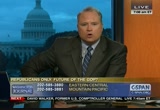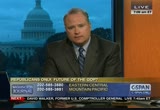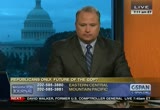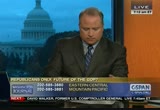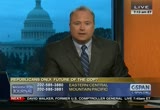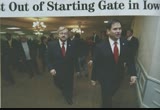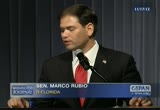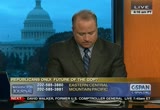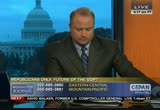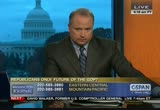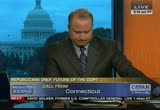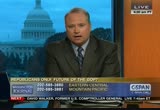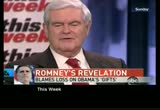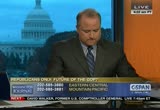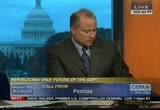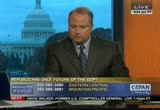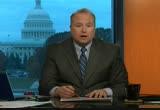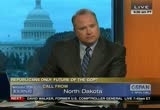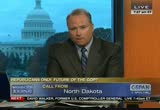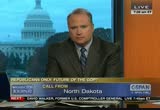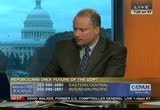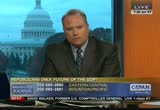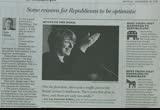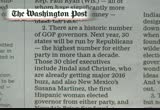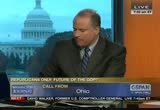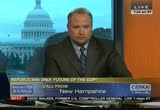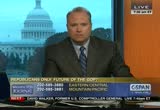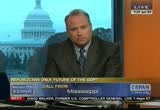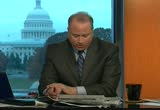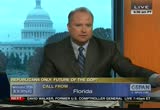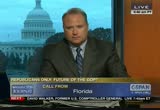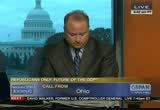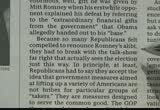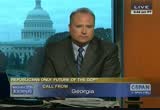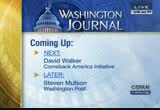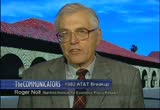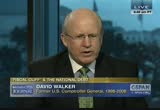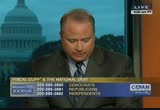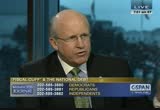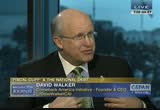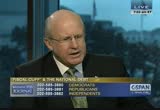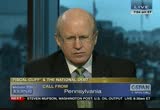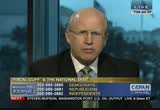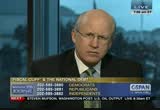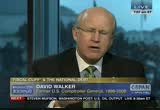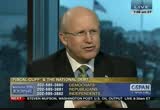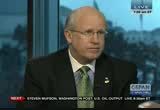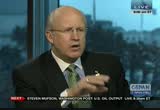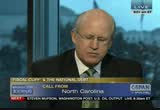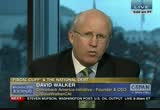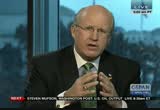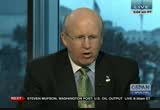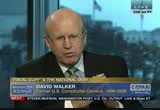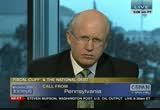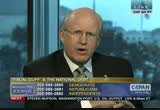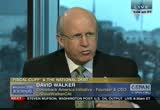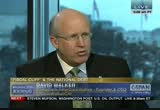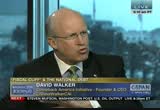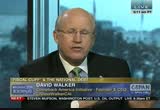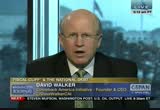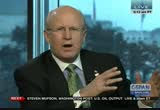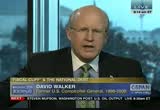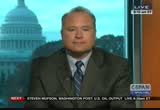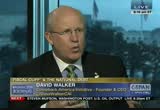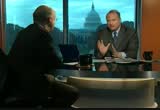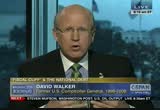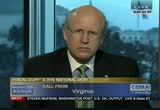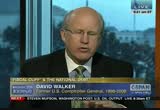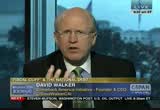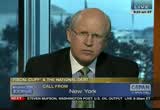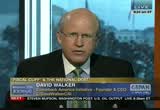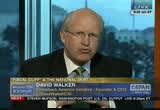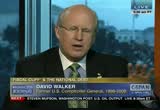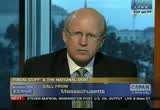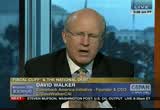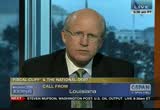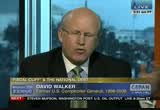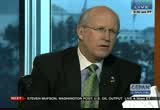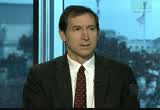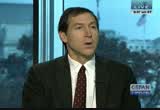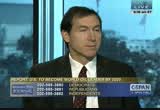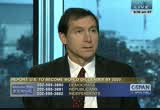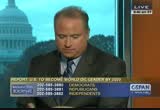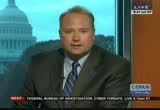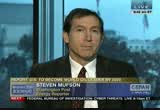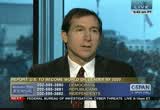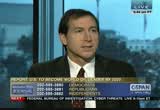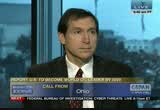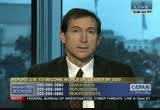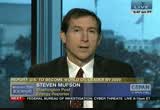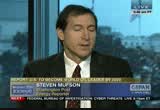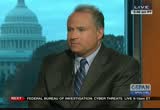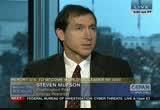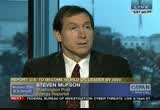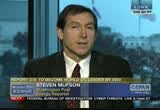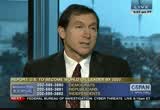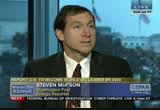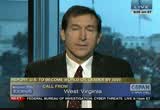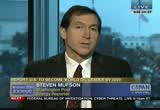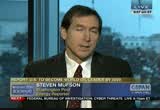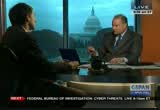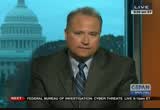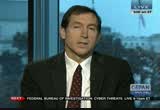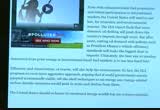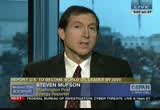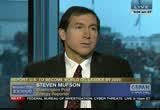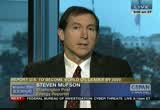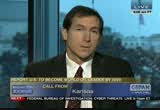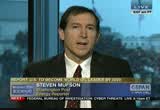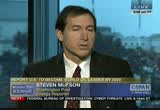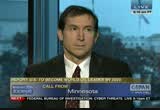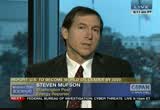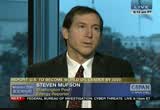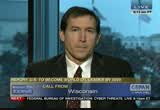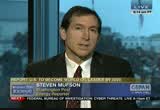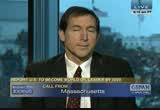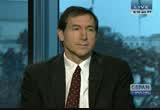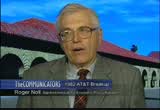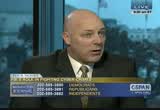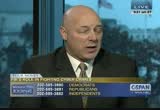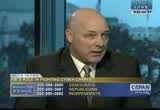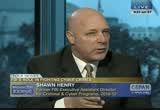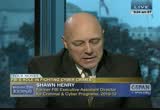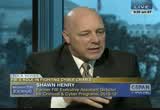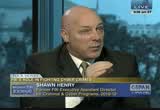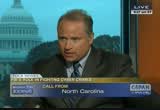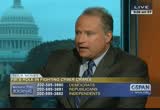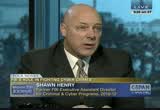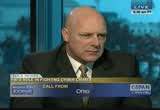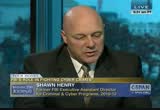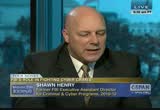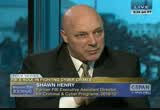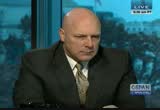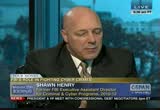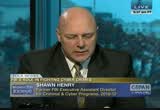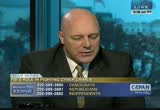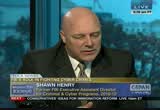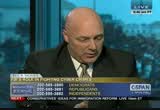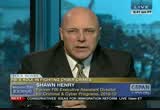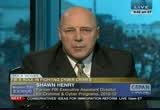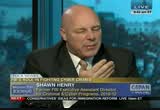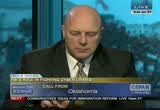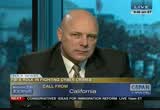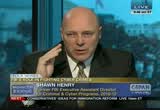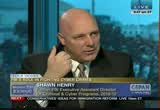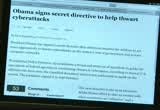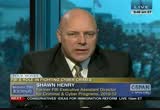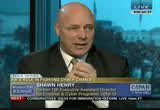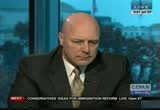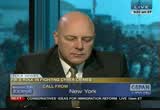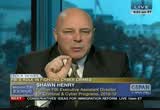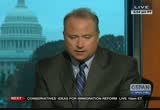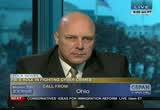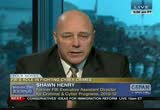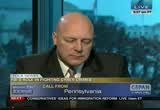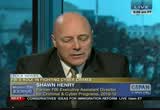tv Washington Journal CSPAN November 19, 2012 7:00am-10:00am EST
7:00 am
the international energy agency. later, we will talk about how the federal bureau of investigation investigates cyber-based crime, terror, and sp nine. "washington journal" is next. >> president obama has become the first sitting u.s. president to visit burma. he also visited thailand this weekend. today, cambodia, where he will attend a summit. in the meantime, back here in washington, congress takes a weeklong break for the thanksgiving holiday. they will come back as they ponder the fiscal cliff and how to avoid it this week. they will be back next week. keith in virginia beach, you are lots more headlines and talk this weekend about the future of
7:01 am
the republican party as it on the line wi. ponders itself. one headline says romney is i think we lost him. digging a deeper hole for the hmael.republican, is party. we want to hear from republicans only for the first 45 minutes of its monday edition. caller: how are you? what do you think the future of your party is, what do you stand for, and what should you stand for moving forward? columbus, ohio. here are the numbers -- i am a republican. what i love in the republicans ere's the "washington times" this morning, the governor of is they -- when they say people louisiana, bobby jindal. give us free money. the talk continues in the party about what to romney has had to say about why he lost to the president. [indiscernible] i worked for a company and
7:02 am
that's where i loved my republican voice. host: lia is on the line. caller: i worked in the primary. what i think needs to happen is we just need to be able to coalesce around a single [video clip] candidate during the primaries. >> first, governor romney is an we cannot do that this time. the social conservatives and religious conservatives and honorable and exceptional man. fiscal conservatives need to be i'm proud of campaign reform able to come together on a candidate. across the country, but i host: is there someone in absolutely reject what he said. we as a party must campaign for particular? caller: i worked for ron paul. every single vote. we want people to like us. we have to like them first. what needs to happen is the religious social conservatives you don't insult people and say need to realize that trying to that their votes or what. we are an aspiration party. legislate this does not work, let the democratic party be the obviously. look at what we have. one that says we will divide people by race, gender, class. we republicans believe are they have to be willing to live conservative principals are good a separated life from the world. for every voter. it's not just a marketing when they think it through and campaign. realize that limited government we will go and convince and fight for every single vote to is the only real way now to go
7:03 am
show them we are the party for back to a moral society, we need the middle-class, appeared to stop actually subsidizing mobility. we don't start winning majorities by insulting our voters. host: just one of the gop voices things like divorce and all the other things that he wrote this weekend about the future of the gop. society but they want to protect. we will get to your calls at e- the fastest way to protect that mails and tweets. is to limit the size of government. we have to realize physi -- fiscal conservatism is the best here's our address -- thing for religious conservatives. and fiscal conservatives have to realize that we need a different foreign policy. there's more the papers and on it's not as conservative what we tv from over the weekend. do. it is also not morally and religiously right. south carolina's central in the gramm was equally harsh in his once we see those issues critique, saying -- rightly, i think we will be able to coalesce around a candidate. ron paul got more votes than anybody out of the young people. it was independents. it was democrats. it was everybody that voted for tampa. if we could converge around a single candidate like that, we would take it all. -- it was everybody that voted for him.
7:04 am
host: some reasons for epublicans to be optimistic -, here's our first call this jared.g from jarrett bus -- chris cillizza writes -- caller: i am a former local official here. i see what's going on at and the party splitting again. they always quote ronald reagan, but he said not to speak ill of another republican. we keep forgetting that. we're not using a new technology. romney, i think there was prejudice in the party against his mormonism. i think a lot of evangelists stood back as they did when john
7:05 am
mccain ran. you can read more that in the washington post. we were 3 million votes down. david is on the line from king george, virginia. i would like to hear what the caller: good morning. other republicans have to say about that. i think bobby jindal is going down the wrong route in jumping the future of the party is if we don't change, we are going to on romney now. we had fractional primaries and die. we need to stop listening to people like fox news, rush limbaugh, because they are not that took a lot of steam out of speaking for the republican party. romney and set us up for the they are speaking for democratic assaults. themselves. they lie too much. host: in georgia now, charles. when you look up the fax and caller: calling from cleveland, find they're not telling the truth, they're not doing it for georgia. the republican party. i believe the republican party they are doing it for themselves. we need to stop listening to pass to get back to the constitution. them and find another news these undeclared wars have to source. host: let's hear from another stop. republican in mississippi, we threw away the ron paul james. caller: good morning. supporters. i heard [indiscernible] one of we needed them to defeat obama. romney did not mention the constitution many times -excuse-
7:06 am
me, i'm nervous. the states want to secede from we have to go back to the the union -- several states. constitution. if the republicans don't go by is that true? the constitution, they are no like mississippi and texas? better than the democrats. host: plenty more time for your host: we have seen in things voices. looking for your phone calls, like that. what does that mean to you? facebook posts, and tweets. caller: i was just wondering if more from the weekend activity that was the case, if that was on a morning talk shows. on sunday, tim pawlenty, a true. i keep hearing different stuff. former governor of minnesota spoke about the future of the party. [video clip] >> if you look back at the looks like our country is falling down. we need to find a way to get election of 2012, when you have back on our feet and start doing a product that you put into the marketplace and the marketplace things right. it does not look good. does not buy it, you either have to have better marketing or host: paul ryan, the republican better plan. this is a wake-up call or the republican party to have better vice presidential nominee, the marketing and it involves a lot chairman of the budgets of things, but clearly committee in the halls of the capital -- republicans need to do better with female voters, with latino and hispanic voters.
7:07 am
so there's a need to better market. we also need products that sell congress is off this week. better. they will be back next week to that does not mean you change continue negotiations on how to your philosophy, but i think president obama, who did a avoid the so-called fiscal cliff. better job getting out the vote in the "washington times we have this story -- and the second he looked at the and was better able to connect with people in the campaign. i don't think it's a matter of people looking at the election and say i will vote because of gifts. i think they looked at it and said which candidate i would prefer because of leadership considerations and can understand their needs best. let's go to janine from host: and this from the washington times -- tallahassee, florida. caller: good morning. it's actually joni. -- [indiscernible] we were upset with bush because
7:08 am
he was hetoo much money. now we have this guy was ben's and his barber from chicago. again, republicans only. triple and double the money, the future of your party. which is even worse -- who would you make of what happened spends triple and double. on election day and how to move forward? -- we have barbara on the line the republican party needs to stop listening to all the talking heads and everybody who from chicago. tells them you have to move further west to hold on to your caller: i have more respect for party. that is why they are losing the party. romney telling the truth about they need to stand for how he feels. something and not just keep he spoke just how he felt. pandering to selected groups. and this is how the republican this is supposed to be the party feels. united states. they take the blacks, hispanics, it is supposed to be equal the gays, they take everybody opportunity, not tribalism. that's where we are going. for granted. if they continue to do that, bobby jindal, he is one of the that's why they are losing their worst. constituency. in his state he is trying to keep people from getting help there is a veiled difference care. what about all the stuff he is between them and the democrats. denying people? the democrats are so far left, all the sudden, these words are that i was a democrat and i not going to change people. became a republican, because the republicans, wake up, people are democratic party was lost. not stupid.
7:09 am
your words and your deeds are i'm in my fifties. they are not who they were. two different things. get on the same page. now the republican party is host: let's hear from susan doing the same thing the democrats are doing. brita, florida. they keep going farther and farther left. that's what is wrong and that's -- susan in tampa. why we're not winning elections. that's why we will not win elections until we either are caller: mitt romney is an conservative or we are not. it will have to be a whole new honorable man. in the winter, in the spring, when the other side was thinking party that's not the republican party that is actually conservative and stands for there talons into the democrats, something or not, because we cannot continue going on over romney was doing his best to get and over again during the same his party's nomination, so he old thing. it's just crazy. never got his feet off the host: a couple more calls. ground until june. so he is bitter. leslie sanchez writes about the that is a natural human emotion gop's latino opportunity, in a that we all feel. it was such a devastating loss. wall street journal -- i am hearing from republicans all over the country. they are depressed, distraught, heartsick. everybody has that feeling. mitt romney was a candidate for everyone. he did not single out the
7:10 am
groups. he just wanted everybody to believe in america. i keep thinking about the story he told the crowd about cutting the flag that was on the shuttle in 1986 and i could see the electricity going through him. he loves america and wants us to love america too. host: to facebook -- that's from this morning. wayne has been hanging on from twitter -- cleveland. caller: good morning. i don't think the republican party has to change. i agree with the young lady before me. it is the principle of the party that attracts you to the party. the republican party has a messaging problem. one of the things republican party has done is walk away from
7:11 am
teaching. if you go back during the reagan era, he was very eloquent at back to your calls, republicans teaching people the principles of the party. if the party goes out and on 00 only, on the future of teaches its principles to all the demographics regardless of the demographics and stands by your party. mark in arlington, virginia. those principles, nobody wants caller: i think tim pawlenty is democratic life. why would we go votes for absolutely right. i would have voted for him. democratic light if we want the i think republicans should stay away from issues that have to do real deal? with -- social issues, and stay the republicans need to get their principal straight and more on the fiscal and financial talk to people about their principles. host: in the post today -- issues, because by staying on social issues they turn off a lot of women. by aligning themselves so closely with religious right, they turn off a lot of people. so they should try to stay more on the financial side and the
7:12 am
fiscal side and stay away from social issues. if they did that, i think they would get more acceptance from these other groups that generally vote democratic. host: richard is on the line from new mexico. caller: good morning. i think this is a low priority conversation. we have all this stuff going on in libya. i cannot remember in the past ashley is calling from georgia. caller: good morning. two weeks you guys opening up with it. i think it's extremely i don't think the republican important. party needs to change. there's a problem with self in my state i was embarrassed because when you look at the entitlement in this country. my grandparents worked for what map, all around us or redstate they had and they grew what they and we were blue. one of the things i blame the is had and lived on what they had. the catholic jarrett bush. they never expected a handout. -- one of the things i blame is that's how most of the people in that time were. the catholic church. we have become a country where we live beyond our means and in this state they ignored this feel we are entitled to free stuff. attack by the obama
7:13 am
i worked at a public hospital. it is the most diverse county in administration on religious liberties, which obamacare and the country. most of our patients are -- almost 80% of the catholics indigent so don't have insurance and they feel entitled to have all the care, hundreds of thousands dollars worth of in this state voted for liberal care expand not pay. democrats, abortion. you have a party say i will give guy think it was a big problem you free stuff and i will pay by the church not speaking out. for this and you will have this they seem to be so afraid of at no charge, people are going to go into that. lawyers and being sued that they were calworks -- were cowards, that's the mentality of the country now. no one believes in working hard for what they have. host: ashley was our last call for this segment from especially from the pulpits. republicans on the future of their party following the they totally neglected it. election. i don't blame the republicans. coming up, a couple of guests. i blame the catholic church. the former u.s. h comptroller host: we are asking republicans and s.awk david walker will join us. he says the fiscal cliff is only this morning to discuss the small potatoes compared to our future of their party, basically future fiscal challenges. because of all the voices that and later, a closer look at a continued on the weekend, republican voices, leaders of recent report that said the
7:14 am
the party talking about what u.s. has become a largest oil mitt romney has said about why he lost and how to afford. producer by the end of the decade -- is expected to become. rick santorum, a former pennsylvania senator, writes -- we will be right back. [video clip] >> the mindset of the world will into the mid-1990s was that wireline access either on polls or buried in the ground today."n "usa was the key to understanding the telecommunications. as for another republican voice, the intriguing part of the marco rubio. wireless story is how very few this is a store in "politico" people inside the industry. that's why the mckinsey report this morning. came out the way it did, was -- a story. that it was not just judge greene and the sec who did not understand the potential of wireless, it was the entire industry, except for a few visionaries regarded as cooks.
7:15 am
crazy,. there's a little of what the senator had to say. [video clip] >> we start with a very simple the hope that you could have or motion. a way to turn our economy around bus late competitive fixed line is not by making rich people access industry where a half- poor. it's by making poor people dozen companies are offering richer. that's the way to move our you a telephone service over country forward. wires, cables or copper wire [cheers and applause] appears like the telephone company, that vision was mistaken. >> 30 years later, was it a good and it starts with economic idea to break up at&t? growth. what can government do to the federal level to get the economy growing again? they discussed the pros and cons look to your governor in iowa. tonight at 8:00 eastern on c- how about balancing the budget span2. and dealing with your? so you don't have one? >> the average new facebook user [applause] how about tax rates that is in india, indonesia, or generate the revenue government brazil right now. they are using a mobile phone needs but are not so primarily a to access facebook unpredictable or high that people are afraid to invest in because they have not had your economy moving forward? access of tour broadband laptop how about the regulatory process or pcp -- to a broad bband that takes into account the costs of regulation and not just
7:16 am
theoretical benefits of regulation? an investment in energy policy, not just energy politics? laptop or pc. host: watched the whole speech a lot of americans tell me facebook is great for gossiping at our website c-span.org. or seeing what my friends are eating for lunch. this year is the governor, the if you talk to somebody in the middle east, and maybe you would guest of honor, one of the guests of honor at a birthday hear a different story, which is facebook provides access to party on saturday. he writes -- news, people that had unique access to information they would not otherwise able to get. the get a unique story about what facebook means to them. abraham: from alexandria, >> an insider's view of the virginia. caller: good morning. company, thanksgiving day on c- span, just after 12:30 p.m. eastern. this is no. 9 virginia. at 2:00, chief justice john -- northern virginia. roberts and a look at the supreme court. the republican party, it's the later, space pioneers and nasa way they talk. officials pay homage to the first man to walk on the moon, it is their language, their just before 11:00. communication, the way they talk to immigrants. >> "washington journal" continues.
7:17 am
that's why everybody sticks away host: david walker, 1998 through from them. host: robert from silver spring, maryland, a republican. 2008, the chief auditor of the united states. what is the way forward? he is now the founder and ceo of caller: i think the party has it come back america initiative. all wrong. you have been watching this most immigrants coming to process a longtime. america came here to better how would you describe fiscal conditions in the country right now? >> poor and deteriorated. themselves and they are really conservatives. in these countries we don't have all these programs to support be referred about the fiscal cliff, which is supposed to you, so you have to work and happen at the end of this year. earn a living. we need to avoid the fiscal cliff. people come here with that we need to recognize that is a objective. what we get from the republicans symptom and not the disease. now is the wrong message. the disease is a large and it has really been increasing growing federal deficit since bush's first election. that lies ahead. we have to avoid the fiscal i supported bush because he cliff and build a bridge to avoid the fiscal abyss. expressed himself as a what is your level of compassionate conservative. i have seen an article where that has been described as being socialist. confidence the fiscal cliff can be avoided? somehow here people seem to have guest: i'm cautiously
7:18 am
optimistic. a wrong interpretation of last week was rather disappointing. i think both sides really do socialism. want to avoid it. the party does not express any we need to recognize you cannot do a grand bargain in a lame- duck session. empathy for people. i think this is where the we ought to do something to demonstrate that we are serious about fixing these structural democrats have been able to overcome republicans. problems. we need to separate the wheat the message i have got from the shaft between what should be extended and what should not be. the real sticking point is what of someone who strutted history, happens with taxes on the wealthy. born in the caribbean, worked there are ways to increase the very hard from the time i was a effective tax rate on the little boy to get myself wealthy without increasing the marginal tax rates. educated through england and then coming to america, started a business within one year from hopefully they will come to agreement on that with full coming here. i was cheated by montgomery comprehensive tax reform. host: the phone numbers are on county government, so i became the bottom of the screen for very strongly republican. david walker. we are talking about the fiscal now i hear a party saying we cliff and the national debt. we have separate phone lines for should return to the good old days. what are the good old days in democrats and republicans and america? independents. and what is the economy they are we look forward to hearing from presenting, the economics? all of you. we will also get some tweets for it seems to be they want to return to a plantation economy. david walker, founder and ceo of the comeback america initiative.
7:19 am
what are they saying when they tell us to let the rich man have guest: it's a 501 (c)(3) more money and he's going to provide for us, provide work for nonprofits that focuses on citizen education engagement us? with regard to federal, state, that's nonsense. that was tried by ronald reagan. local fiscal challenges and nonsense. trust to come up with non- partisan solutions that ought to what are we continuing with be able to gain bipartisan this? support to put our finances in the party has to show more order. host: we have been talked about empathy. the deadline at the end of not because i am successful i december. will think that everybody else is [indiscernible]. what is a short-term solution to avoiding the fiscal cliff? guest: there are certain things scheduled to expire that should my parents instilled in the hard be allowed to expire. work. the 2% payroll tax deduction. also, government systems or that was intended to be a programs helped me to get an temporary stimulus. education. set a bad president. it helped me to be where i am today. host: loou is on the line 99 weeks is enough for unemployment benefits. we have extended that several from waterbury, connecticut -- times and it was appropriate, lou. caller: i am a registered but that's enough. -- the two% payroll tax republican, but i have been voting libertarian since the mid-1990's. i agree with everything mitt romney has said. when ronald reagan was deduction was a temporary
7:20 am
stimulus and it sets a bad president, approximately 29% of precedents. the american public got some the balance of the big items can kind of government assistance. today the number is 49% almost. be deferred for nine months to a year to give time for congress to engage the american people thomas jefferson said it best. and do the work inside the "once public realizes you have beltway to get a grand bargain. treasury, the social insurance reforms, tax reforms, and a program of republic is doomed." defense and other spending reductions. host: what kind of danger is not you have too many people suc acting poorly on all these items? king it up. guest: the big danger of not acting on the fiscal cliff is that consensus opinion is if we a politician is robbing peter to cut spending that dramatically, pay paul will always have paul's if we end up increasing taxes that dramatically, that it would put us back into recession, it vote. will exacerbate our unemployment we have to cut the size of the federal government by 90%. and underemployment process and we need to abolish social nobody wants that. there are things that can be security, medicare, food done to smooth it a little so stamps, these are all social it's not quite as sudden. programs. host: the previous caller talked but it's real. the others think people forget
7:21 am
about deputy. caller: i'm not big on equity. about is if you want to endorse unscrambling the egg, you better -- empathy. have 60 votes in the senate or i am a grown man and i get my you better have a package that will end up reducing the pocket picked. deficit, because that's the only they are taking that money and way you can use this procedure redistributing it to all the called budget reconciliation. freeloaders of society. but if you are trying to reverse tax increases or you are i know this is politically incorrect, but the biggest trying to reverse spending cuts, mistake we ever made was giving those things increase the deficit. women the right to vote. host: before we get to calls before suffrage, the size of come back to your use of the local, state, and federal word of this, here's a headline government was minuscule. recently -- host: i will let you go. critics say romney is digging a take us deeper. guest: we have a short-term deeper hole for the party. this piece in the times focuses challenge which is the fiscal on governor bobby jindal and cliff, the tax cuts, the senator lindsay graham. schedule, probably the tax increases that are scheduled, the expiration of tax cuts, and here's what gingrich had to say the schedule sequestration, and on the weekend. other spending cuts. [video clip] >> i think it's nuts. that is short-term. the structural is known
7:22 am
it's insulting. demographic trends, 10,000 people a day are retiring and it would be like walmart having will over the net 17 years. a bad weekend saying the all care costs are still growing much faster than inflation and customers have really been the economy. unruly. host: on twitter -- our tax system is outdated and needs to be restructured. those create large and growing deficits into the future. it's not a long-term anymore. it is the longer-term. on facebook -- we see it. these are going to be with us a long time and we need to recognize that reality sooner rather than later. host: first call from philadelphia, frank on our john is on a line from republican line. caller: good morning. jacksonville, florida, republican. caller: ron. i wanted to know if you -- whether or not the president does listening to the voice of will have to lower its threshold to people that are probably others, the important thing in a making around $200,000 a year. democracy. all these people, like the last i don't think what he said guy, i don't know where he gets during his campaign is going to his sources from, but what we cut its to get us over the need to realize is fox news is cliff. guest: i think over time we will not our best representative of our republican outlook.
7:23 am
have to look and help to define and the bishops going against what middle-class is and what the gay people was not a smart will see is. one of the frustrations i have thing for republicans to look to. we don't need these foghorns for as well as many americans is the the rich telling us what to do. cost of living is different in different parts of the country. we need our own republican it costs a lot more to live in voices. the tristate area of new york, we need to realize if we want to new jersey, connecticut than it be good republicans, we have to look at the core values, which does in southwestern virginia. is smaller government, not a in the final analysis i believe we need comprehensive tax reform hateful government. that is what we have turned that will do several things. into, a hateful party. it will get more people paying we did not have to do that. income taxes under more we did not have to listen to progressive tax system. right now 46.4% don't pay income these foghorns for the rich who decimated us in this election. tax. it would increase the effective host: james from florida, good tax rate of about the, but not morning. caller: good morning. getting new rates or new alternative minimum taxes. this is all the republicans it would minimize the burden on middle-class. listening, and the democrats the gap is so great, there's that are not far left wing, two going to have to be a component of revenue. words why the republican party i think it's about 3-1 spending lost and why they will lose reductions to revenue. every major election nationally the jury is out on how they will achieve revenue increases. from here on out unless. they host: meg is on the
7:24 am
unless and that is ron paul. the young people in this democratic line from trenton, new jersey. country know that the two party caller: i would like to know system is basically a hoax. what you think about the possibility of having some of romneycare and obamacare is the same. the benefits for people who are on social security or medicare. these guys are all in the same party. the republicans -- and i am there are a lot of things that republican -- i voted in the people are allowed to ask for a far as hair-care and primary this year for ron paul. these republican neocons that want to spend trillions of nail care, that they need to foreign wars that do nothing for look a certain way to find work. america, give foreign aid to all i am disabled and i decided to these countries that hate us buy myself will scooter so i just to make israel safe and could get around, because i could barely walk. they forget about the united i had been almost housebound for states, we need to get back to a almost a full your years. party, the republican party has i decided to take money out of to get back to a party for the the social security i'm getting united states, not for the rest to make payments on the scooter rather than to have medicare pay of the world, not for israel. for it. it is really offensive to marco rubio, they have prodded someone like me, and 47%er by
7:25 am
him out already for the presidential election this year someone like mitt romney was as we are entitled. and for 2016. he will get beat by anybody the i am ashamed of having to democrats put up. accept public assistance, but i the republican party as it don't have a choice because i'm not able to work. guest: we have to recognize a stands now, run into the ground by these neocons, is a doomed significant majority of americans pay more in payroll party. they are a dinosaur. taxes than they do in income taxes. you can forget about them. the challenge is those payroll they will never ever be relevant taxes were earmarked for social security and medicare and they again. don't generate adequate revenues host: ms. moore from rick to be able to live on the promises that have been made santorum in usa today -- under those programs. those programs are geared to provide benefits for the less zoloft than the well-off. that makes sense. -- benefits for the less well-ff to provide more benefits for the less well off bend the
7:26 am
well-off people. we need to take care of the disabled. in many cases what the government has done is it has overpromised for broad cross- section of society, going well beyond the poo and well beyond the disabled. it is done that in connection with a number of health care programs, whether it be medicare or the new the affordable care act. ultimately, we will have to go back and rationalize our promises, recognize the difference between universal opportunity and universal subsidy, focus on broadbased societal needs rather than unlimited individual wants, and jim from grand forks, north do it in a way that is pro- growth, does not include the dakota. prime rate, and provides a safe, the future of the gop, sustainable social security net. republicans only. host: the move into the office caller: i just got out here from pennsylvania. in 1998 and served 10 years. i spoke with pedro couple months did you see a lot of this coming? guest: i did, but in 1998 when ago after saving four year period ho. mike came -- when i came in we
7:27 am
what took you had a surplus. been in 2000 we actually had a true surplus, excluding social i came out here for all kinds of big jobs and big money. i'm freezing to death right now security. we paid down debt, which is the in a motel, but i got a great first time we had done that in many years. job offer already. i'm happier than ever in my then what happened, in 2000/2001 life. there is beautiful people out here and the beautiful red there were projected surpluses river. as far as the eye could see. as of bald eagles fly over my i testified many times on shoulder the other day and saw capitol hill. otters swimming in the cold khyber asking what are we going to do about the surplus, that water. host: how about the future of maybe we would pay off the national debt. your party? i did not worry about paying off caller: it's finished. the national debt. first, i said, these are pat buchanan predicted this years ago. protected and they may not they are going the way of the happen. we face large structural wigs. deficits due to known demographic trends and rising democracy is destiny. we don't believe in deficit costs. i tried to get them to use prudence. starting in 2003, unfortunately, the wheels of the bus came off [indiscernible] and things have been out of control ever since. we don't believe in building a both political parties are nation within a nation. responsible. host: you mentioned in thousand the democratic party is a party of endless racial grievances and retirees. guest: every day for the next 17
7:28 am
native americanism. years. what that means is you get a why did barack obama not have to double whammy. what happens is when people win over the polish people or the armenians? retire and they go on social because they assimilated. security and medicare, they are the republican party does not generallyfederal income tax revl have to apologize for being white. if people come from all over this country because of what the go down prefer the more, anglo-saxon and germanic people payments for social security and built. let's be honest. medicare will go up. since the government keeps its the idea that we have to get budget on a cast spacious -- some trending minority like marco rubio to win people over cash basis, you get more is ridiculous. it is racial extortion. spending all at once and but hispanic groups have forgotten what woodrow wilson demographics are destiny. host: in terms of what those said in 1915 to newly arrived immigrants. folks might get compared with "any man would thinks of himself as belonging to a particular now, what should they expect? national group in america has guest: in the case of social yet to become an american." security, we should have it in a the democratic party talks about a village of diversity. way that maintains it, with a when they go home after their supplemental account, convention, all those white people go back to vermont and particularly. san francisco. you can gradually increase the they don't live around the
7:29 am
retirement age over the years, minority they claim to love. and look at the black race. increasing a hair benefit for 40% unemployment among young people near the poverty level. black men, 7000 young black man -- increasing the benefit for killed by other black men every people near the poverty level. year. hispanics not doing very well. we believe in a melting pot. host: karen writes -- you can do those kinds of things. the younger you are, the better off you are financially, the more you'll be affected. the older you are, the less you'll be affected. all we need is leadership. host: the next call, north carolina, republican line. larry in alabama, you are on the caller: good morning. let me get this right. air. caller: of this was republicans thear as i'm concerned, only. people in washington have no i referred a lot of libertarian's this morning and idea what is going on. some disguised democrats they all have no common sense. alleging to be republicans to they all sit there and try to make the republican party looked bad. -- i thought this was put stuff into it and it costs republicans only this morning. us more.
7:30 am
everything they do -- they sign we have not heard much about the fiscal cliff yet. we have 30 republican governors. something in the office they don't even know about the whole thing. we have a majority of the u.s. i don't sign a contract or nothing unless i know what is in house of representatives, it. i don't understand how you guys do that. and i don't understand how you government closest to the take something that you're people. 3 million more americans voted trying to pass and put 16 other for mitt romney then voted for john mccain. things into it. we are still at least in parity it would be so much easier if you would pass one thing at a with the democratic party. time, instead of trying to pass we don't need to do anything. 16 things at a time. we don't need to move away from i did have some other things, our conservative principles. but i just cannot go into it what we need to do is nominated right now. host: let's get david walker's conservative candidate. then those 3 million people will response. be motivated to go back to the polls and vote for republicans. guest: i am not an elected official. i am not part of the problem. this was not a philosophical i am trying to be part of the solution. victory for barack obama. i agree with the thrust of what you're saying. it was not a victory based on i believe washington is out of any demographics or all the touch and out of control. i believe one of the reasons it is that way is because were prognostication and the dominated by something our analysts. nation's founders never
7:31 am
it was a victory based on intended, called career turnout. politicians. a vast majority of the elected the democrats were able to turn officials of the federal level out more votes than the may or may not have had a real republicans did. in some cases i believe there is job in their life. once they get elected, they still massive voter fraud in don't. this country. they want to keep it for life. when you have 20,000 people in the only work three days a week voting in philadelphia for in washington, d.c. they get off seven times more barack obama and none for mitt romney and you have 90% turnout than the typical american. if they got paid for results, they would owe us money. in some of those spots, that is pretty obvious. the attorney generals in these it is time that we the people start putting pressure on elected officials to start working full-time and start republican states need to let generating results. the hammer down and puts people we not only need policy in jail for voter fraud and we operational reforms, but we need will see a free and fair political reforms in order to election next time. revitalize our democracy. the republicans don't have that today we have a republic, in my much of our problem. two years from now we will have opinion, that is not another election. representative of or responsible i promised the republicans will to the public. that needs to change. do really well throughout the election. host: chris writes -- host: does that include term limits? guest: it does. we need to think about redistricting reform to maximize
7:32 am
the number of competitive districts consist of the voting rights act and set of minimizing -- instead of minimizing. wish to get rid of democratic and republican primaries in go to integrated and open primaries. the top two vote getters, including minor parties, would runoff in the general election. we need lobbying reform terribly, campaign finance reform, and we need 12 to 18- year term limits, in my view. host: a tweet asks, by sir, your including the house and leadership, are you? is that the answer, term limits? how to get to a point of leadership as if you want to see to solve the problems as you see them? guest: leadership involves all branches of government. the united states only has one
7:33 am
it chief executive officer. there's only one person who is elected by all the people, and that is the president of the united states. senators are elected by people in their state. members of the house are elected by people from a congressional district. only the president and vice- president, which is on the ticket, are elected by all the people. in the congress, it is a committee. you cannot run a country but a committee. we have to political parties, which are factions. that's a tough enough time controlling their factions. we need extraordinary presidential leadership and when the the leaders of congress to be able to work with the president on the principle based approach to achieve reasonable compromise for the good of the country. right now the country is very closely divided. the margins were greater in the electoral college than they were in the popular vote.
7:34 am
this is a very divided country. it is also a very frustrated country. they wanted stars in progress, not partisanship. host: jonathan, independent caller for david walker. caller: good morning. everybody talks about the fiscal deficit from the federal government, but very few people talk about the trade deficit and the effect that has on the fiscal deficit. our tax code needs to be reformed. we don't tax money going out of the country, and we don't tax it until it comes back in. we need a major reform we can have capital that comes into the country when we don't tax it, we encourage it. when capital goes out, we discourage it through taxation. and maybe use that money to
7:35 am
build up our infrastructure, put people back to work, and make society more productive. when people have a job, they pay taxes. they are not a drain on the system via the i think we need to get smart and quick. that is my comment. guest: i would said the country faces a number of what i call sustainability challenges, meaning our present course is in prudent and unsustainable. fiscal policy, which is taxes and spending, people understand that. our trade policy, we need free trade but fair trade breve we don't have that now. with regard to fiscal policy, on the corporate side, we need to make it simpler, more competitive. we need -- there are problems with regard to how our current tax system is. we need to address a number of other issues such as our education system, our critical
7:36 am
infrastructure, our immigration policy, and many others were where we are now is not where we need to be. we need to recognize that reality and make changes. host: the headline this morning -- what does this mean to you? guest: what does it mean to america and what does it mean to americans is more important. it means because business is uncertain about the future with regard to tax policy, with regard to regulatory policy and government spending, they're becoming more conservative and cutting back. it creates an additional sense of urgency for congress and the president to work together to address the fiscal cliff and build a bridge for a grand bargain to avoid the fiscal abyss.
7:37 am
if this continues, it means slower economic growth, less job opportunities for americans. on the other hand, if we can avoid the fiscal cliff and build a bridge, we can totally reversed this. we can send a very positive signal to business, to the markets that will end up creating additional opportunities, additional growth, and will help our physical condition. that is what we need to do. host: this gets us back to the earlier chat about broader tax reform. explain to our folks in the short time we have, what that means, how long does it take? what is the process? this is not just something they cannot get before the end of the year, is it? guest: no, it is in. i think we can do it more expeditiously than was the case under the reagan administration, but you need to engage the american people and conduct hearings, put together the necessary legislation.
7:38 am
there are things that need to be done as a matter of prudence and due process. i think it is possible to get it done next year as part of a so- called grand bargain, and i think we will have to do a grand bargain. the republicans are not going to allow additional revenues absent tax reforms and absent reforms to social insurance programs. the democrats are not going to allow social insurance reforms unless they achieve additional revenues. and both are going to have to come to some agreement on defense and other spending reductions that won't compromise national security. it is very possible to do. i just came back from a 34-day national fiscal responsibility bus tour where we got 92% agreement on principles of reform and got a minimum of 77% support for specific reforms across all those areas and others have just mentioned. you say, what is the problem?
7:39 am
leadership. host: the next call, virginia, democrat. caller: my first question is also or a comet to c-span. could you do a favor, every time you have one of these think tank people on, and that includes you, mr. walker, i want to know who is your top individual donors? to me, whether it is heritage or bookings, i think we need to know where you are coming from. guest: let me stop you there. we're talking about the fiscal cliff. caller: i'm a political independent and have been for 15 years. the comeback initiative is funded through several sources first. we get a grant from the peterson
7:40 am
foundation. we have individuals of different groups. i dedicate all of my riding fees to the comeback america initiative. those are the sources of our funding. you can go to our website which is keepingamericagreat.org. we will be filing a tax form that is disclosing. host: does that help you? caller: no, that is a big spin. who is your top donor? guest: i just told you it is a foundation, the peterson foundation. we have other donors as well. all of my speaking and writing fees, which are several hundred thousand dollars a year, go to the nonprofit. that is the source of our
7:41 am
funding. host: tell us to pete peterson is. caller: during the nixon administration, he has a significant experience in the public and private sector and lives in new york city. host: how about a question or comment on the budget talks in the fiscal cliff? caller: i would like to talk about that. >> when you speak we need to broaden the tax base and you want to ask the poor people, because at this country that is in poverty or close to party, and you want them to not only pay a payroll tax and you want that to go away, but you don't want the rich to basically -- you want to keep their tax cuts but you want to add an income tax on top of their payroll tax for the port, how do you justify that? guest: first of all, what i said was a majority of americans pay more in payroll taxes and income
7:42 am
taxes. the poverty rate in the united states is 15.9%. 46.4% of americans don't pay income taxes. obviously, if you are near poor, you could argue he should not have to pay income taxes. i don't know what the right amount is, somewhere between 15.9% and 46.4%, but i think it is a lot closer to 15.9%. i believe, and as i said before, that we need to increase the effective tax rate of individuals who are better off financially. but how you increase the effective tax rate matters. one way is to add new tax rates or add on new alternative minimum tax structures. i don't think that is the right way. i think we need to get rid of a lot of deductions, exemptions, and exclusions. we need to lower the top marginal tax rate.
7:43 am
if we can do that, getting down to 25%, 20%, you could eliminate the difference between taxations for or their income and dividends, that is where wealthy people make the money. they do not make it in wages. i think we need to consider a standby progressive tax. wealthy people do not spend just based on the income, but based on their wealth. i am for prince of tax reform that will get more people paying something under more progressive tax system, the will increase the effective tax rate, and the percentage that the wealthy pay and will try to minimize the burdens on the middle class, quite frankly, and more disproportionate share of irresponsible government policy. host: we have about 50 minutes with our guest david walker. this is dick durbin yesterday. [video clip]
7:44 am
>> if you talk about revenue and tax reform, they will sit still for that conversation. i was say to my friend the congressman, he said sparing the middle income families will solve the problem. it solves the problem for them in america, but it says when it comes to tax increases, let's go to those who can afford to pay. they should pay a little bit more. they have been blessed and success. paying a little bit more this of this national problem is not unreasonable, but we do have to cut spending. we have to look at entitlement reform that does not threaten the existence of important programs like medicare and medicaid. host: the wealthy should pay more, dick durbin says. guest: that is right, but we have to use terminology people understand. we need more revenue. one way you get revenue is 3 additional taxes. but there are different ways to get additional tax revenue. one way is to add on additional
7:45 am
tax rates or add on new taxes. another way is through -- get rid of what i call back door spending, deductions, exemptions, special preferences and disproportionately benefiting the wealthy. get rid of a lot of those. streamline the tax code. simplify the tax code and will generate more revenue. republicans believe, and they are right, that if you end of simplifying our tax code, it will get more economic growth. if we make these decisions, this this will end up investing more. that is true, but you cannot solve our problem just with economic growth. both parties have allowed government to grow too big, promised to much, and it is time to restructure. host: another piece speaks of the limiting deductions, talking about taxpayers in high tax states would be hit harder. there's a little chart here in case you're interested colorado
7:46 am
"getting a break." they listed some of the higher income states. california leads the way. if you go down the charge, the lowest states, indiana the lowest in terms of just what folks are getting in their homes in terms of added as -- itemized deductions. that's it from the other gentleman we heard in that clip. [video clip] >> tax increases to chase after higher spending is a fool's errand. we need to have that balanced approach we have all been talking about, which is increasing revenues through a process of tax reform, then spending reductions. we've had four straight years of trillion dollars plus deficit. you cannot continue this and have economic vitality, which is what we need. host: anything there you want to respond to? guest: the federal government
7:47 am
spends over $1.40 for every dollar it takes in. you cannot continue to do that without having a day of reckoning. we need comprehensive tax reform. we need a comprehensive approach to regaining control of the budget, social insurance reforms, defense and other spending reductions, and tax reform that will generate more revenues. i don't believe the word "balanced" is correct. it generally means. the general view of the american people based on the 34-day tour i just took, keeping america great -- you can see the results on keepingamericagreat.org. we need to cut spending at about three times as much as increased revenue. and phase in these things so we do not cause another recession. and people can have time to adjust. host: republican line, for david
7:48 am
walker. caller: thank you for taking our call. david, we spoke on several occasions. first of all, i think the goal of some symbols is -- simpson bowles at this time is not achievable. there's talk of a $four trillion reduction, now we would be lucky to get to $ 2 trillion cut in spending. i think a representative that just spoke, i just mentioned a combination of both spending cuts and tax increases is the only way forward to avoid the fiscal cliff. although, the only thing we hear right now is tax increases for the wealthy. people making over $250,000 a year. i agree with you in the sense that, david, $250,000 in income with the cost of living in
7:49 am
different from geographic region to geographic region does not necessarily mean a quality. with these issues upon as, it seems almost apparent there getting to a kick the can down the block again. what impact has kicked the can have on sequestration? and what impact does it have on addressing these fundamental basic issues this country faces both short-term and long-term debt? guest: first, we have to recognize reality. we have to decide what is going to happen on the so-called fiscal cliff. you're not going to get a grand bargain during a lame-duck session. there are things they could do and that they will build a bridge -- you may call it kicking a can -- by building a bridge to try to do a much bigger deal in 2013. i don't think is realistic to do a big deal until 2013 because, quite frankly, they have not engaged the american people
7:50 am
enough and they have not done the work to the committees here in washington. one of the things that i think needs to happen is there needs to be an official type of government education engagement effort by clinton did in 1998. an expanded version of what we did in the comeback america initiative in september and october. it prepares the people for these tough choices and solicits their input. if you get the sequestration, there are several hundred billion dollars of spending reductions that will take place. if we go over the fiscal cliff, there are several hundred billions of dollars in tax increases that will take place for this next year alone, and much more over time. i believe we can avoid the cliff. i think it is about -- important to avoid the cliff. it is equally important, if not more so, we achieve some type of grand bargain in 2013 because the structural deficits represent the disease. the fiscal cliff represents the symptom. host: new york city, independent
7:51 am
color. caller: thank you for taking my call. mr. walker, i recently heard in the news the congressional research service, a branch of the cbo, released a report entitled "taxes of the economy." to the top economic rates since 1945. in the beginning of the report, at one. essentially it talks about the taxes from the mid 1940's going from 90% in the top marginal rates down to what it is today. it says the analysis of the data suggests reduction in the top tax rates have had little association with savings, investment, or productivity and growth. this just came out in september. its author was a specialist in
7:52 am
public finance. i know mitch mcconnell has tried to bury this report because it came out before the election. i wonder if you have any comment on it? this seems to be a kind of white elephants the republicans have been throwing out for some time that lower taxes and we're going to have more revenue. guest: first, the congressional research service is a division of the library of congress and separate and distinct from the congressional budget office. secondly, all of the reports are not automatically made available to the public. the member of the senate or house that requests for report has to allow it to be released to the public. i'm not sure what the circumstance is here, if it is available to the public. i have not read it. i don't know it is available to the public. frankly, we need reforms on this. there needs to be much more transparency with regards to the reports. what ends up happening, the
7:53 am
members of congress, if they get a result they like, they will release it. if they get a result they don't like, they will bury it. we're paying for all of these reports, not just some of them. congress works for them, and -- congress works for us, not themselves. i've said over again, not all tax cuts are equal. not all stimulate the economy. very, very few tax cuts pay for themselves. i mentioned earlier that we need to increase the effective tax rate as well as the share the " wealthy" pay. you have to keep the mind there's a simple principle of math. you can confiscate the entire net worth of the entire 1% in this country and we would not come close to solving our fiscal problems. it is that serious. yes, we need to generate more revenue and the wealthy ought to pay more, and yes very effective tax rate should go up, but how you do it matters.
7:54 am
can paring back to the 1950's is, frankly, ridiculous. the world is a totally different place today than it was in the 1950's. after world war ii, we were over 50% of global gdp. the dollar was as good as gold. demographics were working in our favor. frankly, we did not have that much competition. we are in a very different situation than the 1950's. host: on twitter, what happened to actual spending and income to be balanced? guest: things spun out of control starting in 2003 when the statutory budget controls that are supported by president bush 41 and bill clinton expire. that meant the so-called payroll rules that you could not end up doing that finance it cuts, could not expand new government programs of the should pay for it. they expired.
7:55 am
washington spun out of control. three things happen in 2003. the second round of tax cuts, we could not afford them. we invaded a sovereign nation without declaring war, without paying for it -- iraq. we expanded medicare to add prescription drugs, added $8 trillion to medicare was already underfunded about $20 trillion. irresponsible. things have frankly gotten worse since. host: mike, centerville, massachusetts. a democrat. caller: hi. i am wondering why since our healthcare system is one of the biggest drivers on our national debt what we never hear cbo numbers comparing single payer to the private situation have in place now.
7:56 am
guest: mike, cbo is generally requested to do work. frankly, they have a huge supply and demand imbalance. they're getting a lot more requests than resources -- then they have resources to deal with. you have to ask cbo why they have not done that. let's understand this about health care. we spend twice as much per person as every other major industrialized country. we get below average results. it is estimated the affordable care act will cost $12 trillion more than the politicians claim. based upon reasonable, sustainable assumptions, medicare is underfunded $37 trillion and growing a couple trillion a year by doing nothing. we have promised to much in healthcare. we need a universal health care
7:57 am
system in this country that focuses on broadbased needs, not unlimited individual ones. preventative, catastrophic with options to get more. we need a single financing mechanism. we always tend to do more for the poor, disabled, and veterans. but for the vast majority of the population, the government has promised wait too much. we need a budget like every other major country for financed health care, based on evidence rather than outcomes. when in malpractice reform. -- we need malpractice reform rid check out our website for a lot of great ideas including with the american people said about a number of these reforms were there was significant majority report -- support. host: one last call, louisiana, independent.
7:58 am
caller: good morning. i have two questions for the first of all, if he could quickly answer this one, it is a comeback for my next question as the comptroller, what exactly were you in charge of? i guess i want to know who is in charge of overseeing social security? guest: i was comptroller general of the united states, the chief executive officer of something called the government accountability office, the gao. it is in the legislative branch. it helps the congress oversee the executive branch. it works for the congress and the american people. we do work across the spectrum, including with regard to social security. i was a trustee of social security from 1990-1995, fyi. host: and your question about the fiscal cliff? caller: this is the thing that gets me. there are plenty of people who
7:59 am
are trusties across this country who have gone to jail for not living up to the fiduciary responsibility. everybody wants to call this an entitlement. this is our money that was entrusted to your care to make sure it was there for when we retired. this has been around since 19, what, 1936? guest: effective 1940. caller: with all of the projections, knowing what is going on, the most intelligent of the intelligent people of the world, and nobody can get this right? quit borrowing from it. pay it back to find world war ii, which there was no income tax, and give us our interest. host: your final thought? guest: when i was a trusty along with stan ross, we blew the whistle that washington was out
8:00 am
of touch and out of control, the social security and medicare were unsustainable on the present path. the truth is, the reason the government has been handling the finances of social security the way it has is because that is what the law calls for. the law calls for any "surpluses, excess of revenues, expenditures, be invested either in u.s., securities or securities that are [indiscernible] one of the frustrations i have is the government uses certain words that don't in the same thing under the webster's dictionary. for example, trust fund. trust funds are separate and distinct legal entities. if you do some of the things -- and the private sector -- that the government does, you would go to jail. host: our guest has been david walker, former comptroller general of the 1990'the united
8:01 am
states. thank you for your time. we're halfway through this monday edition of ""washington journal." we have 90 minutes left in the program. coming up, the u.s. is poised to take over saudi arabia and the world's largest oil producers, something that came out at a major international report recently. in a moment, steven mufson will join us for a closer look at that. a bit later in the program, and look at the fbi's cybercrimes unit with the former fbi agent responsible for all cyber crime investigations in the u.s., shawn henry. all of that coming up after this news from c-span radio. >> making history twice within hours today, president obama became the first u.s. president to set foot in cambodia. a country once known for it its killing fields. he left behind flag-waving
8:02 am
crowds on the streets of myanmar or downtown came to a near halt during his visit. meanwhile, unlike burma, the white house made clear that president obama is only in cambodia to attend east asia summit and said the visit should not be seen as an endorsement of the prime minister and the government he has led since the 1980's. in the middle east, the palestinian civilian death toll rose today as easterly aircraft struck densely populated areas in the gaza. the overnight airstrike on two houses belonging to an extended clan killed two children and two adults and injured 42 people, according to a gazan official. it attacked a militant, the single deadliest day in the conflict. the marine corps is forming the first squadron of pilots to fly
8:03 am
the next-generation strike fighter jets. this, months after lawmakers raised concerns there was a rush to end the testing of the aircraft hit with technical problems. so far, to give veteran pilots have been trained to fly the jets. the first members of the squadron that will debut at a ceremony tomorrow at the marine corps air station in yuma, arizona. it would replace cold war era aircraft such as the hornet and the harrier. >> the average new facebook user is in india or brazil right now. they're using a mobile phone primarily to access facebook because they've not had access to broadband laptop or pc. in a lot of cases, there is that it infrastructure of media or communications you have any u.s. lot of americans will say,
8:04 am
facebook is great for gossiping and single out my friends are eating for lunch. but if your to talk to someone in the middle east, the major difference story which is that facebook was providing access to news, to people that had unique access to information they were not able to get otherwise. you get a much more meaty story about what facebook means to them. >> more from chris cox thanksgiving day on c-span just after 12:30 p.m. eastern. then chief justice john roberts and a look at the supreme court. later, space pioneers and nasa officials pay homage to the first man to walk on the moon, neil armstrong. >> "washington journal" continues. host: steven mufson joins us from "the washington post."
8:05 am
the u.s. will output will overtake saudi arabia in 2020. how did this come about? guest: from the huge explosion and shell oil drilling, mostly. this is the sibling of gas drilling. you drill horizontal, fracture the welcome and free up a lot of resources that are trapped in the shale rock. host: what has happened with technology and where is it happening in the country? guest: north dakota is one of the biggest places. huge explosion and output there. you also see it in other places. we will see more and ohio, and some of the areas of texas as well. host: what does this mean for folks in terms of pocketbooks? guest: if you're just buying
8:06 am
gasoline, it might not mean much in terms of your pocketbook. any oil will help moderate prices. prices are still high. the iaea is forecasting continued high prices. if you're just a motorist, it might not make that much difference. but for the country, is this a step afford economically. host: some of the details from the international agency, world energy alec, u.s. oil production, the u.s. will pump 11.1 million barrels a day by 2020. quite a job. 500,000 girls hired in saudi arabia. u.s. oil imports will drop from 10 million to 4 million in 10 years. give us your perspective on what this means. >> it is good news from an economic point of view. environmentally, that is separate and not necessarily so great.
8:07 am
this type of well production requires a lot of drilling. we're talking about thousands and thousands of new wells all over the country. that is one concern. it involves a lot of water. that is worrisome. from a price point of view, it is a mix thing. we also have very high oil prices, but we will be keeping more of that money here in the united states. host: the phone numbers for our guest, steven mufson, energy reporter for "the washington post." you all have your separate lines. our guest started with "the washington post" in 1989 and covered financial news in the new york bureau. previously at "the wall street journal" for six years covering the oil and gas industry. before we get to the calls, what
8:08 am
have policy makers done or what have they been doing to allow the country to reach this point that the report talks about? guest: not much, actually. this is largely an initiative from the private sector. there was some government money involved in the early stages for a company called mitchell energy, which took advantage of the energy department program to help fund some of its research. really, most of the breakthroughs have been on their private side with new applications and advances in existing drilling, which mainly are hydraulic fracturing and hard bobble drilling. new: let's hear from hampshire, independent. a low, rocky. caller: good morning. i want to ask steve about the natural gas developments for passenger cars.
8:09 am
i wanted to see what he thought about the prices for those. i think they are in the low $2 per gallon range. and see what the holdup is with this industry, why it hasn't taken off quicker? guest: i think the reason is because it is expensive to build a natural gas fired car. it is hard to refuel it. you cannot pull up your local gasoline station where you do now for gasoline or diesel. i think the first advances we will see a natural gas-fired vehicles will probably be in fleet vehicles. they tend to come back to the same location. you do not have to change the entire infrastructure of nearly 100,000 gasoline stations. host: anything else? steve, florida, a democrat. caller: good morning. i would like to ask a question if he could explain it to a lot
8:10 am
of my friends. for some reason, they think because we're going to outpace saudi arabia, can you please explain to these people in oil production that if it is $150 a barrel in the united states, it is $150 in beijing, china. they all think it is our oil because it is coming off the u.s. soil. can you explain to me where all the profits go and how much we are exporting to china and if we will continue to export our oil while still paying these high prices? guest: that is a lot of questions there. first, i think we need to be careful about what i would like to call a rational and exuberance about what is happening in the oil sector. it is good news we will increase our production rate, but the u.s. will still be in that importer of oil. the price of oil will still be
8:11 am
very high. in this international energy agency report, forecast the price of oil would rise to $120 in real prices, inflation- adjusted, by 2020. $125 by 2035. that is a two of $15 a barrel oil by 2025. in terms of prices, we're talking about in the environment similar to today's, maybe slightly worse, in order to hit those and provide incentive to hit those will targets and also to dampen demand. that is part of the iaea calculus. you have both the production and demand side. an order for us to even in part a modest amount and get to that point requires a major steps forward in fuel efficiency. host: so who is benefiting the most? guest: the middle east continues to benefit tremendously. opec countries share a global
8:12 am
connection forecast to go up -- production forecast to go up to nearly half of world oil supplies. the middle east remains a big beneficiary. the u.s. will be better off in those terms than it would be without this increase will bring production. we will be keeping more money at home. oil makes up about two-thirds of our trade deficit now. that number will decline. oil companies that do very well with higher prices will continue to do very well. host: back to the idea of shale gas. you mentioned some parts of the country where this is happening now and will happen. what is the impact on jobs? what is the impact on tax revenues? what is an average salary in this part of the field? guest: the average salaries to be pretty good and it will be a positive impact on jobs.
8:13 am
always a little cautious about using numbers because people play games with numbers. generally, it will be popular for jobs not only in the sector. the natural-gas industry hires a lot of other industries, namely petrochemical. they use gas not only as a source of care, but as a feedstock. that is where you'll see the first big impact. there's a company dismantling the plant in chile and moving it to louisiana. big expansion plant and lots of areas of louisiana with good infrastructure. we will see more and more jobs and industry coming in those areas. host: tom, ohio. thank you for waiting. caller: around our area, they are drilling like crazy, about every three or four weeks there are moving to another site and
8:14 am
drilling another well. there are literally drilling tons of them around here. there are some that are just casing. then there are building $800 million plant out around my area. i went to a meeting the other day and the guy talked-about how if you turn around and you want their propane, there are places you can get it. you can go up to 300 miles. he said if they can get the gas, and that is what their time to do in ohio, tried to get legislation we can get -- taking to the propane down. they said you are basically only collecting $2 a gallon for propane, so that will lower the oil prices. but the only problem is, are we going to build the oil companies to lower it? that is one of my questions for
8:15 am
you and stuff. what do you think of all the -- another question, you're talking about jobs and things and stuff. it has produced jobs, but it is not producing the kind of jobs you are saying. guest: what area of the country are you in again? caller: northeast ohio. guest: sounds like he of a propane fired truck. caller: no, i don't have a truck. i don't do that business or anything. i have a lot of property and stuff like that. we're right in the heart between west virginia and pennsylvania and ohio and stuff. if you go to martialed shale, you can see on the internet, you can see where their drilling the most. guest: and there is a lot of drilling coming to your area. i think for people that have vehicles fueled by propane, they're in pretty good shape
8:16 am
right now because of the price of natural gas. people who live in your area, a lot of those people will benefit from royalty payments connected to the gas production. you're also praying -- paying the price for having trucks and filling stations in your area. that is the trade-off, i am afraid. host: one of your recent stories had this headline -- you talk about a company in louisiana. he talked about other companies and other fortunes are rising. give us more perspective. guest: the abundance of natural gas could really feel a tremendous industrial revival in the united states. that comes with all the things that have the industry does. we have been down this road before in the united states. from an economic point of view,
8:17 am
it is a very good thing. we will be more competitive than we have been for a long time, even with countries like china. there are a lot of products for which, maybe even certain types of toys, which we've not manufactured in this country in years, that might makes more sense to do it here in the u.s. because the labor costs are not that huge, anyways. i think for the country, it is a good thing from an economic point of view. i keep saying from an economic point of view, because from environmental point of view, there are a lot of concerns. those deemed to be dealt with, too. host: talk about those concerns as things grow and develop with the drilling around the country. what are you expecting from the epa, from the folks on the hill in terms of expressing their environmental concerns? where does that balance with their concerns and what business wants?
8:18 am
guest: business would like as low of regulation as possible in order to drill wherever they want, pretty much. some of the bigger businesses i think are aware that good practices are important for continued political support. so i think there are a lot of companies that are trying to follow best practices and get some of their other companies to follow them, too. ultimately, the environmental protection agency will probably have to take some position on what its role is in terms of imposing perhaps tighter standards on the use and disposal of water. that is one of the biggest issues. although companies recycle a lot of the water in this type of drilling, they also have some they have to dispose of that involves a lot of toxic chemicals. water disposal is a big issue. in certain types of practices in
8:19 am
drilling can reduce the chances of contaminating water aquifers. host: there is a headline about water in "the wall street journal" today. freezing water. they point out energy reforms -- forms, on pace with chicago, use as much water as the city of chicago to do this operation. anything you want to add to that? guest: it is a lie. -- it is a lot. a lot of truck traffic. that is generally how they transport it. on a global basis, it is phenomenal how much of an increase in water consumption the iaea is talking about. they're talking about an 85% increase in water consumption by energy industries by the year 2035. a lot of these areas are already short of water. host: martha, illinois, a democrat.
8:20 am
caller: my question was about water. he answered a lot of my questions. why do you have to use so much water for this -- what you're doing? host: let's get an explanation. guest: the water is using at the very beginning of the production process. the whole idea of hydraulic fracturing is you shoot a lot of water down into the well, and the water mixes with a little bit of sand and some chemicals, creating cracks in the shale rock. the oil and gas that has been trapped in that rock migrates into these fractures and then back up the well. you don't need to do this very often. you do it at the beginning of drilling, although, it is possible in 20 years down the road, you may want to re-
8:21 am
fracture the well. generally, you do it once in the beginning. the needed a big surge in production and the protection carries on at a lower, but very steady, rate for a long time. host: they do. the amount of gallons of water that is needed in this article. the price tag they point out for is caring that much water can be substantial. they'll have to pay more for this water, which means the prices for what they're doing for will go up. guest: that is one way to look at it. you need to keep in mind for shale drilling in mind, -- in general, we see a lot of the cheapest low-cost areas been developed first. just because we can get gas at $2 a thousand, a few -- at 1000
8:22 am
cubic feet now, does not mean we can tap all the resources at that price pint -- point. prices could go up. the use of water is just one way in which costs can go up. host: how this is going to change the discussion in washington about everything from energy to the budget to the environment customer what are you expecting in the years to come? guest: it changes a lot of the way we talk about energy, for one thing, which has always been predicated -- the least since the 1970's, on the idea of scarcity. suddenly we're talking about abundance. and how we manage that -- i should say relative abundance, especially in the gas area. we're already self-sufficient in that area, where companies are looking of becoming exporters of natural gas. this really changes the way we think about it, how we manage these resources, how this affects our attitude toward efficiency. efficiency still has to remain a
8:23 am
priority both in order to meet these targets that the iaea has, but also from a climate change point of view. we have not mention climate change yet, but it is an overarching issue. if you have some resources that the price were to go down, what does that do to our incentive to remain efficient? from the climate change point of view, we already have so much -- so many greenhouse gases in the atmosphere, the ability to moderate climate change to that two degree centigrade level is going to be very challenging. host: a caller from west virginia, republican. caller: i would like to ask mr. mufson, i talked to the columbia gas guys and they tell me they poured in norfolk, virginia to import. they said there were selling it.
8:24 am
this city got to go or the market is. the company that bought them actually is building three more ships. this that whatever the market will bear, they get more overseas -- they get more for it overseas. exporting is cheaper now, but it could be expeditiously raised in pressing later. guest: natural gas prices here were exceedingly low over the summer, down to around $2.1000 cubic feet. that is not really sustainable. probably had something to do with the mild winter last year. now prices are around $3.50 per cubic feet, which is still one- third to one-fifth -- $3.50 per 1000 cubic feet. naturally, a lot of producers of natural gas here in the united states want to export and get more money in these other
8:25 am
markets. it costs about $3 or $4 to liquid financial gas, another $4 to transport it overseas. you're talking about a pretty high price at the other end of this tunnel but it is likely that we will do some of that. one company is already permitted to change natural gas importing facility in louisiana to an exporting facility. there are quite a few other companies lined up to try to do the same thing. host: on twitter, winning more perspective on the middle east. guest: there is a lot of debate on this and has been for quite a long time, with a lot of people saying oil production in saudi arabia was at its peak or near its peak. saudi arabia continues to produce an enormous amount of oil.
8:26 am
there's only been a moderate amount of exploration in saudi arabia, so there are a lot of people who say the peke oil series are, at the very least, the mature, that there are still a lot of oil to be discovered in saudi arabia. the other interesting thing, saudi arabia also has a lot of shale oil and gas deposits, just as we do. it could try to tap into those resources as well. so i think saudi arabia is a visit will probably be the world's largest exporter -- and it is forecast by the iaea, we overtake saudi arabia for about five years and then fall back again, were saudi arabia keeps on going. i think will be a fact of life in the oil market for as long as you can see. host: another comment on twitter. could america be energy
8:27 am
independent by simply not exporting? guest: we are not in that exporter of a building. we currently import night when 5 million barrels a day. in the iaea report, by 2035, we will still be in pointing -- importing 3 million barrels a day. our refineries produce more diesel than we need here in the united states and import gasoline because some of the refineries in europe are producing more gasoline than they used in europe. there is a trade in oil product. unbalanced, where huge importers of oil and oil-refined products. host: fred is an independent from wisconsin. caller: i think we can agree there's a finite amount of economically recoverable oil than in the united states.
8:28 am
if we double production, are we going to use that up twice as fast? shouldn't we be doubling our efforts to replace that with an alternative source? i don't see anyone i don't see anyone talking about that and i'm wondering what you think about that. guest: how we manage resources is important. i don't think it is realistic that the united states would shut in its oil production capacity. obviously, there are parts of the country that we are choosing not to explore, primarily of the atlantic and pacific coasts, and part of alaska. but i think your point of exploring other alternatives is one that we will continue to pursue.
8:29 am
and the question of biofuel, about how to be balanced against how much future -- food we use. a lot of the audiences in the coming years, i suspect will include a those advances that do not include food. and finally, efficiency is the most important thing. more fuel a month -- fuel efficient cars, wiser uses of these things within the industry. those remain a central afford -- the central for the environment and for economics. host: here is from an article.
8:30 am
sweet springs, missouri, mike is on the line. he is a democrat. caller: i think the producers ought to be giving americans a trade-off in one of three categories. we know our price of water is going to go up in the u.s. and if our water rose up and our gasoline remains the same amount because of exporting and the cost of shipping, with one of vigor energy costs in water, electricity, and gas just because of shaving. -- shaling. the producers ought to give one thing at least, guarantee higher wages, or reduce gasoline costs.
8:31 am
you cannot do this to the american people on all three sectors with no trade-offs. if we are going to pay high costing gasoline, high-cost in water up to $5 per gallon for bottled water -- people are paying $2 per gallon from bottled water now. we need a trade off. i do not think that the producer should be allowed to do anything unless the american people are given a fair shake on one of the three items. guest: water is one of those under covered subjects, i think. there are a lot of -- as populations increase and the size of the economy's growth, how we feel about that will be, very important.
8:32 am
all production involves water, whether a nuclear power plant for killeen, auricle power plant for -- for cooling, or a coal plant for production. how we manage that will become more and more important as we move ahead. host: one viewer on twitter asks how do you become energy efficient when we cannot produce -- and we don't have the production capacity? guest: the motor fuel market may very well have piqued because of increases in fuel efficiency of vehicles. it is possible that we might not consume more more fuel than we do right now.
8:33 am
that is one reason why we are a net exporter of refined products right now. host: north dakota, a republican. caller: i work in western north dakota and an oil patch. i have seen a lot of these oil wells being drilled on federal lands. i'm wondering where the revenue goes. and we're not talking just a couple million dollars. we're talking billions of dollars. guest: it goes to the federal government. the federal government has royalty rates for land that it leases to oil companies. and more importantly, for offshore areas, especially in the gulf of mexico where a quarter of our national oil
8:34 am
production is right now, the royalty rate escapes me right out. but i think it used to be roughly 12% to 13%. i think it was recently increased to 18%. the oil companies are complaining that the federal government is not releasing the land and fast enough. but if you're in that area in north dakota, you know how much activity is there already. from your point of view, there's probably quite enough there as it is. int: let's go to eric kansas. he is an independent. caller: i would like to ask how much money would be saved, or fuel, if we dropped the speed limit. also, the biggest user of fuel in the united states is the american military. of wondering what the impact that is on fuel prices as well.
8:35 am
guest: good question. i cannot recall the percentage on dropping the speed limit. i think it was in the neighborhood of 5% if you dropped to 55 miles per hour. it was a modest, but significant number. because we are talking about those large numbers. if we are consuming and 80 million barrels a day of oil, 5% of that -- 18 million barrels a day of oil, 5% of that is a good job. the military is a user of oil refined products. these big carriers and tanks and things are very fuel inefficient. any advances the military makes an area would be very helpful. in terms of all countries use it
8:36 am
would be very helpful with supply lines it -- helpful. from the military's own accord to view it would be good to be more fuel efficient. host: let's bring up the keystone pipeline in the conversation. where is that at this point and in the future? guest: the president managed to postponed a decision until after the election accurate now we are after the election and the pressure is being ramped up by environmental groups. there was a rally here yesterday about that. there are a lot of groups trying to make this a priority to try to defeat the pipeline. the president embraced the southern leg of the pipeline. construction is already moving ahead. that is the section that goes from cushing oklahoma, a major
8:37 am
terminal for oil, to the gulf coast where may -- the most of our major refineries are. what is still uncertain is what would go from the canadian border down to steel city, nebraska. the decision will probably be made in the first quarter of next year. most people assumed because of the way that the president talked about the project when he postponed it that he would ultimately approved it, but i think out is less certain because environmental groups are revving up again to make this a priority. and it is such a bad thing from the climate for the view that we should stop this project. host: next caller, go ahead. caller: i want to place my question in context.
8:38 am
a couple of things to come to mind what i ponder this, and first, there are a couple of studies indicating that in the last several years about a 2% reduction of available auction in the atmosphere because of industrialization and the use of ordaz -- available oxygen in the atmosphere because of industrialization and the use of fossil fuels. also common -- also, this is a rising threat to whether or not our species can survive on this planet. another thing that comes to mind is that it is astonishing to me that we have not tried to implement a system of mass transportation. this is one of the only western countries in the world but does not have high-speed trains. -- that does not have high-speed
8:39 am
trains. recently, seattle had to cut down their monorail after 50 years of use. it ran for 50 years without repair. we could have high-speed trains all over the country that use no fossil fuels. what would you think of a system like that? guest: i think that a high-speed train proposals have mostly involved areas that are not high traffic routes. i think that developments of interest to the rail systems and probably more important. -- inter-city rail systems is probably more important for and think of the one in new york, that cares people every day. the one in washington carries up to 1 million people a day. those are things that could make a dent in our fuel use. i'm not sure that intra-city
8:40 am
high-speed rail, as sexy as it is, will make a big impact on our production of oil products. host: an internet guest asks -- guest: there is a lot of debate about this. to where i end up is the feeling oil speculation tends to exaggerate price moves. if there is a little bit of scarcity in the market and prices are moving up, speculation, as we call it, or you might just a investment are the people who are not actually using the products. this is the way we deal with a lot of issues. it can drive it up, much faster and much higher. the important thing is the net flow of funds. if money is flowing into the market will push prices up
8:41 am
faster. if money is flowing out of the market, it will push down prices faster than it should be. people use oil the way they use other financial instruments to bet on the future, to hedge things. that makes it all more complicated. host: chris is calling from wisconsin. he is a republican. regard tom calling in a national gas reserves that was found in the country of cattaragus -- qatar. it is supposedly the first billion dollar base ever built to protect its natural gas reserves. i was wondering if i was true. the other thing is, should it be legal for people to invest in ande of these commodities -- diggs like oil that could be
8:42 am
detrimental to setting prices -- and things like oil that could be detrimental to setting prices? guest: i will take the second one first. i don't think it to be illegal for people to invest, but i think the sec and the cftc need to set rules about rules of positions and the disclosure of positions that individual companies make so that the market is more transparent and people do not mistake what might be a move by one company for something for something broader going on in the market. scudder is a huge gas exporter. it has the third largest -- qatar is a huge gas exporter. it has occurred largest natural gas reserves in the world. our u.s. military center there
8:43 am
is -- was the command center during the iraq war. there is a significant tied at qatar has with the u.s.. but that preceded the iraq war and our relationship host: last fall in massachusetts. an independent there. caller: i had heard a few years ago, on our news channels about a couple of students from one of the major universities here who had developed a battery. they showed it and they've got approximately 100 miles to a gallon. and it just disappeared after a couple of days of big publicity on the new channels. why wasn't any research and an element on on that? and for all of the oil being
8:44 am
drilled on public property, why can't there be a set price for gasoline in the united states? the average american would not have a problem with $2.50. but because it is coming off of public property, which is all of the taxpayers. what do you think about that? guest: you cannot guarantee a price. that would essentially be subsidizing. it would be bad for the u.s. long run. if you want to think about treasury, you might think about raising royalty rates. obviously, u.s. companies are opposed to that and that would beapproximately 100 miles hard. the price of oil is flexure rating. it is very hard to get the subsidies off -- is fluctuating. diverted -- it is very hard to get the subsidies off once you put them on their puritan host: -- host: are in there our guest
8:45 am
has been -- on there. host: our guest has been stephen mufson. thank you for joining us. coming up next, shawn henry former fbi agent speaking on cyber crime spirit >> the average credit-card debt per borrower in the u.s. grew almost 5% between july and of timber. the rate of credit card payments at least 90 days overdue hit 0.5%, up from last year. the late payment rate is rising from historically low levels. nijuan on wall street, stock futures are rising on quarterly earnings over optimism that a
8:46 am
deal on the so-called fiscal with can be reached before the new year. the futures are ups ahead of the opening bell. the financially troubled maker of tin -- of twinkies, ding- dongs, and water decided friday that it could no longer make it true doctor -- through chapter 11 and needed to close shop. those are
8:54 am
guest: is it a criminal group, is it a nation state text is it a tourist group and what are their motives and what can we do as a government to try to mitigate the threat? host: al is the fbi performing? guest: i think it is performing as well as they can under the circumstances. we are not winning the fight although we've month -- we won many battles. the offense outpaces the defense. the sophisticated adversaries are becoming more sophisticated. there are more groups, adversarial groups, that are getting on line because of the value of the data. because of that, many of these groups are moving their criminal enterprises and espionage platforms to the network. the breadth of the thread is
8:55 am
getting wider and i don't know that we are able to keep up in terms of capacity. host: in terms of current resources, this is from the year 2012 -- host: let's get to calls in winston salem, north carolina. go ahead caller: with all the information out there, is the internet about to change as we know it in a way that we can protect ourselves in the future? guest: i missed the first part of that. host: he estimates the internet as we know it is changing. guest: i think this is such a
8:56 am
broad threat. i don't know the average american ever gets to really hear about how substantial the threat is because much of these threats are identified via the intelligence community and are not necessarily promoted throughout the private sector. what we need to do is change the focus. we don't want to focus just on perimeter defense to protect ourselves but we need to identify who the threat actors are and we need to work to mitigate that threat whether it be through policy, some type of financial sanctions, diplomatic actions and those sorts of things particularly when you're talking about nation states. we are all at risk. this is not merely a u.s. problem. this is an international problem we all face. host: what is your sense of economic damage that has been done already? guest: this is absolutely
8:57 am
national security issue parabolan president obama said this is the most significant economic -- this is absolutely national security issue. president obama said this is the most significant economic threat that we face. certainly, but government recognizes how substantial this is. there have been a number of consultants that have tried to calculate what the cost of this is. the most recent one i saw was about $400 billion annually which includes the cost to mediate the networks, lost productivity, loss to intellectual property. etc. i don't really know how you quantify this. it is so vast and much of it is not reported. companies are reluctant to talk about the fact that have been breached. host: why? guest: they are concerned it
8:58 am
might impact their stock price or their credibility with clients and customers. i think the company should be more forthcoming because this is happening to everybody. companies think that we don't want to talk about this because it will make us look bad in the eyes of our customers. it is happening to everybody. when we come forward, we start to talk about this in a much more public forum and we raise awareness and put pressure on those causing these threats. ohio, on's here from our republican line. caller: wee seemed to be able to sell = some = thin -- sell some things fast. -- solve some things fast. it seems everything device we have is that you use it.
8:59 am
our social security numbers are giving people around the world could ways to track us. i cannot understand how the government kept -- cannot get on china and this has been going on for years and they can't get on top of it but they can get on top of generals winning wars. guest: this really comes down to a whole government response. technology is just a piece of the answer. you need to have technology on your network to help identify when there is a breach and that gives you a greater understanding of what is happening under network to look for these intrusions. that is a piece of the solution. part of it is having discussions with nations that are aggressively pursuing this. there are dozens of countries that either have electronic espionage capability in place where they are targeting western networks. they want to empower their
9:00 am
private sector, and power their manufacturing base, their retail base. they are doing it at the expense of the american taxpayer. host: where is congress on legislation for this? guest: air are more than 40 bills on the hill. covering a whole range of cyber security issues. some of these bills have been bouncing around for five years or more. i recognize understand it is incredibly complex issue. there are many different concerns that people have whether it be the private sector, privacy groups, those in the government', and each has a .ifferenc agenda or perspective have to have a greater sense of urgency because the threat is so significant. this is an existential threat. this is a threat to life.
9:01 am
far critical infrastructure goes down, -- i grew up in the northeast in new york and i have friends and family still suffering from the hurricane. imagine where a major urban area loses its power for not just 7- 10 days or so but seven weeks, seven months. if the attack is so vast and damaging that we lose the infrastructure or the equipment is destroyed and cannot be replaced, these are some of the threats that we have talked about in the government. these are some of the things our adversaries have talked about doing to us and something that we have to certainly raise awareness and take seriously and do so expeditiously. host: our guest is currently president of crowd that strike services, a company making their own network secure.
9:02 am
why did you make the transition out of government? guest: i enjoyed my time in the fbi and am tremendously proud of the people i worked with and the mission i was involved with every single day. i was eligible to retire when folks across the board came to talk to me. i have other opportunities to do things in fortune 500 companies, i chose to go to a small startup company because of the vision they had or they were focused on identifying and mitigating the threat, not just the standard run-of-the-mill perimeter defense, anti-virus products. the vision was that we have to have a paradigm shift in the way we addressed this threat. seeing what i saw in the fbi, seeing what i saw across the u.s. government not only from an operational perspective but from a policy perspective, i
9:03 am
recognized we had to change the way we do this. i wanted to stay in this fight. this was an opportunity to really bring my experience to a group of folks who have a tremendous vision and want to change the way we do this. host: let's hear from an independent scholar in michigan. caller: good morning, mr. henry -- my question has to do with the drone we lost in the mideast where they apparently tricked into landing in their country against their wishes. how much technology did we lose there? how is the investigation going on that issue? i think those drones should have a self-destruct if they have loss of control so that you can burn up all the relic -- all the
9:04 am
circuitry that needs to be kept secret. guest: i don't have specific information about that particular case. if, in fact, there was some intrusion into a computer network that may have controlled that piece of military equipment, i have no knowledge of that particular case. all of our networks are connected. the vulnerability is such that if an adversary can access the network, they can make changes to what equipment does. one of the threats i talked about is the terrorist groups looking at our infrastructure. they are looking at industrial control systems and these are the computers that control the big equipment that power is our infrastructure. if those computers are infiltrated, data is changed, the equipment is destroyed or altered, that equipment will cease to function the way it is
9:05 am
intended, causing great damage. host: let's hear from linda in knoxville, attempt -- tennessee, a democrat. caller: my qualification is that i was m. originally an arpnet user since 1976. what role as the successful effort by seminal low-level operating system companies, particularly microsoft, had at getting laws passed that give them no legal liability when flaws in their software open up holes for intrusion? guest: i don't know specifically what microsoft lobbying process is. i think companies need to understand the impacts of their products on the private-sector. i know many companies in the software world who have worked
9:06 am
very diligently to close gaps in their products for security. i know they have worked with law enforcement and others to understand what those threats are so they can be more aggressive and more robust and their capabilities. host: take us back into the work of the fbi itself. does it have the know-how to combat this problem the way you think it should? guest: the fbi has made tremendous strides in hiring. when i started, we looked for good investigators and tried to teach them how to be technologists. we made a big change in that recognizing it was easier to take a sophisticated technologist and turn them into an investigator. when i was in the bureau, we made great strides in hiring and recruiting some of the best
9:07 am
technical schools and universities in the country, people who have spent 10 years of systems administration, computer scientists, and then brought them into the fbi. with those skills, they very clearly understand what technology is being breached and how to better track the adversary. we turn them into good investigators who can get a good sight picture on who the adversaries are. host: what is missing as far as the fbi approached? guest: i think we capacity in terms of the resources. the fbi is one piece of the solution. this is a whole government response. the fbi role in the investigations domestically against criminal enterprises and foreign intelligence services, trying to identify who the adversaries are so the action can be taken -- i have yet to come across a network that has not been breached.
9:08 am
it really is capacity. the fbi does not have the ability to respond to each and every threat in this country. host: what to the fbi have and not have access to? guest: when there is a breach into a computer network, there is a couple of things that need to be asked. what happened? why did it happen? who did it? that is a very important point. you got to understand who actually caused the breach. that we can take actions against them. when the fbi response, not unlike a traditional crime where you are looking for fingerprints or shell casings, you're looking for clues. in working in coordination with the private sector, the victim, you can look at the network and logs that indicate when someone
9:09 am
could have had access and changes that have been made in the network that give you clues like that fingerprints or shell casings that help to identify who the actors are. host: let's hear from south carolina on the republican line. caller: is the recent hacking in south carolina a threat to national security and what is the fbi role? guest: the recent action in north carolina -- i don't have specifics on that particular case but my understanding is that it was theft of personally identifiable information which typically indicates an organized crime group. you are looking at these groups that are stealing data they can then turn around and monetize. when we're looking at social security numbers and will like, that is indicative of an organized crime group.
9:10 am
that is not necessarily 100% true. there could certainly be some national security aspects. sometimes when adversary has asked -- access to a network, the use it to attack other networks or there may be nefarious acts ongoing or other information that has been stolen we have not yet seen. host: oklahoma, independent caller -- caller: hello, i have two statements real quick. on the internet -- is it true obamaecently, didn't signed an executive order that would turn over the internet to the nsa and the united nations? host: me stop you there. guest: there has been discussion about an executive order being signed. that might fill a void related
9:11 am
to the legislation that has not yet been approved on the hill. this administration has put forth legislative proposals that would allow for better information sharing that would allow for harsher penalties for those who breach networks. the executive order going forward appears to look to fill that gap. host: will that be effected? guest: this is such a huge complex problem. there are pieces as it relates to information sharing, intelligence sharing which allows us to get a much better understanding of what is occurring. these threats are so broad and diverse that when you look at just a piece of them, you do not have a picture of what is happening. about to the adversaries are and what other networks they may be targeting and you're not able to pick up the indicators that can tell you who they are.
9:12 am
my father was a new york city police detective for a long time and he said if you rob one bank, you probably get away with it. the guys who get caught are the ones who robbed several apparent all along the way, they make mistakes. i see this in a similar way where if you could get a much broader understanding across a large data sets and you look at a volume of information, you are able to really start to attribute what is happening. when we talk about intelligence sharing, that is what occurs in that space. host: you have a second comment, caller? caller: my second comment was for the previous caller on energy and gasoline and things like that. since the 1980's, we have had the technology to run water through their engines. it was perfected back in the
9:13 am
1980's. what ever happened to that? he had numerous patents on that. youtube as most of the information and most of the technology on it. we also have another processor and a generator that was developed by a man from europe. host: let's move back to the topic of cyber crime. let's hear from a van nuys, california. caller: my wife and i are both rightfully concerned about-to -- identity theft as it occurs over the internet. my basic question -- do any of these products that we see advertised on television and/or
9:14 am
talk radio -- there is one prominent one that starts with the letter 'l' and my wife wants me to sign up for $160 per year that will protect us from identity theft over the computer. are any of these products effected? guest: it sounds like you're talking about one of these services that identifies when your private information may have been breached or stolen and protect you in terms of dealing with credit towards or attorneys and the like. those may or may not be successful. the fact that you are monitored and identified or notified is helpful. what we want to do is look to prevent rather than merely react to the issue. in crowd the strike, we try to identify who the adversaries are and stop them from attacking our network. one of the strategies the u.s.
9:15 am
government can use in a better way. not merely reactive but in a proactive and much more offensive and strategic position. host: one viewer wants to know about the structure of the fbi -- guest: that's a great question. the fbi cyber division and cyber crime division and crime division worked closely together. they are using cyber as a weapon. many of the same things that have been occurring for thousands of years -- people have snuck in under a tent and walked out with a papyrus with secret plans. fast forward to the current day and we are merely using the networks as a vector into organizations to steal data.
9:16 am
the counter intelligence and cyber division works hand-in- hand. the counter intelligence brings the expertise had to deal with foreign intelligence services and understanding their tactics and methodologies. the cyber division brings their capabilities and together they work in a coordinated fashion, having a greater impact on the adversary. host: here is that recent " washington post" is on the executive order -- this was published last week and dating back to mid october. anything else you want to add to that? guest: it is a secret order.
9:17 am
no. host: let's move on to mike in st. bird -- st. petersburg, florida. caller: what you were just speaking to -- the first amendment has been los int the quest for security, supposedly. nobody really knows what the real motivation is. the country has gone down a path [inaudible] which is eluding each of you. including this gentleman. guest: there are real patriots in the u.s. government who have worked hard to make personal sacrifice and make this country safer. i think people need to understand what the threat is
9:18 am
and if they understand that, they would be much more receptive to the investigative tactics and needs. a look at 9/11. if you can imagine august of 2001, if somebody in the government came forward and said in august, there is a big threat from people trying to blow up planes and you need to take off your shoes and take your toiletries and put them in a plastic bag and take off your jacket and take your laptop out of its case -- people would have been up in arms. they would say it is an invasion of privacy. fast-forward and planes crashed into buildings and all of a sudden, people understand what the problem is. taking off my shoes is an inconvenience but i understand what the risk is and i'm willing to make these concessions to be
9:19 am
safer. in the cyber environment, we are in the same place. something really bad will happen. the digital equivalent of planes flying into buildings will happen and people will ask why we are not doing something about this. the caller and others need to educate themselves and really get a better understanding. for 24 years as an fbi agent, i fought to protect civil liberties. i believe in freedom of speech and the u.s. constitution and i swore an oath to protect it as did my colleagues. i take umbrage with somebody questioning patriotism and a willingness to die for the constitution of the united states of america. host: let's go on to an independent from glen falls, new york. caller: good morning, i believe there is cyber crime but most of
9:20 am
the people that are pushing it have by financial interest in the subjects. that always leaves me with a little bit of skepticism. i agree a low bed with the previous caller. i am not calling you not a patriot -- i'm just saying that the actual degree and sophistication of cyber crime i think still remains to be discovered. my question to you is -- you have been talking about cyber crime going in one direction only, an attack on united states. i think you have to also mentioned that the united states also participates in cyber crime, probably in the three divisions you mentioned. there is probably corporate cyber crime against other nations in the world.
9:21 am
we know the united states government did some cyber crime against a nuclear reactor of another nation. i thank you should mention that also. thank you. guest: regarding people who are looking to make money off of this -- i would ask the caller and others to look at the people who are actually talking about this every day. general michael hayden, former head of the cia and nsa, admiral mike mcconnell, for all -- former head of the nsa, general alexander, current head of the nsa, shawn hammett, former executive assistant director of the fbi, people will have seen this from a different
9:22 am
perspective. they don't look nearly at the headlines that someone lost 50,000 names and passwords. what they have seen in their day to day life is threats on critical infrastructure, attacks on u.s. commercial states a military networks. they see it every single day. i have been talking about this while i was in the fbi for many years. you can look me up on things i have said for years, having no idea that i would move into this space. why would i move into the space? because there is a problem and needs to be fixed. i did not move into the space to try to promoted hoping i would make a dollar. i want people to understand this thread is absolutely real. host: next call is from boston, on the democratic line. caller: from the iranian
9:23 am
perspective, i would like to remind you that it was the united states that fired the first shot when it launched a virus against a dangerous situation. perhaps you did not think they would respond. if you did not, you should not be in the job you are in. have a nice day. guest: i don't know what the question was. host: let's hear from an independent scholar in ohio. caller: morning, i am fascinated about how many people are against this cyber security act. why would the government have to tell you to lock your front door and closed her windows at night to keep people from breaking in? if you live in a neighborhood where there is a large number of these break-ins, it is common sense that the neighbors would get together and tell each other
9:24 am
about the different methods that were being used, not what you have in your house. if you run a business and you don't lock your front gate or your doors are file cabinets, you are an idiot. why the government should even have to tell you that -- if you had the hope diamond on display in your jewelry store and it is on a flat table with a tablecloth and you don't have a front door to it and it is in a high crime area, how long do you expect your display to be there when you leave for the night when you don't have a front door? guest: i think that is a great characterization of this issue. much of this should be intuitive. i don't think people understand of the threats. if you're in a high crime neighborhood, it is something
9:25 am
you should be concerned about but i don't know people understand that the internet is a high crime neighborhood. it is probably the greatest invention of my lifetime and it is something we of to be concerned about and have to navigate the threats. the representation is right on the money. host: we have a democrat from pennsylvania -- caller: i believe in cyber security. it is necessary but this homeland security is all overblown. senator lieberman created the job for himself and a new industry in the united states. how much more to our products cost us because of this overblown security? it is all based on fear. all this over-inspection at airports is all in excess. that's all i have, thank you.
9:26 am
guest: i have been in the fbi and i have had -- i don't know if you called a privilege -- but i had the occasion to see what the threats are. there are threats from the cyber perspective and the threat from the physical perspective. there are adversaries that are looking to harm us, not just from the cyber perspective but from the physical perspective. those are significant. folks in the government that i have worked with for many years have sacrificed themselves and time with their families and personal time to help protect this country. i cannot be prouder of being affiliated with those people. i think that citizens need to understand what those threats are and that they need to educate themselves so they have a better appreciation for what
9:27 am
is really happening. host: mcclain , virginia, republican, good morning. caller: i wanted to say thank you to your guest. i am not sure where the last few callers little or and what were they are living in, but having been brought up on the northeast coast of the united states and having a family member involved in 9/11, some of these people must have their heads in the sand. i want to say thank you to you and all the people working so hard. i know what the fbi is doing and i want to say thank-you to the people who don't have their heads in the sand and the work you are doing. keep up the good work, thank you. guest: those are the types of things that really help motivate the folks that
142 Views
IN COLLECTIONS
CSPAN Television Archive
Television Archive  Television Archive News Search Service
Television Archive News Search Service 
Uploaded by TV Archive on

 Live Music Archive
Live Music Archive Librivox Free Audio
Librivox Free Audio Metropolitan Museum
Metropolitan Museum Cleveland Museum of Art
Cleveland Museum of Art Internet Arcade
Internet Arcade Console Living Room
Console Living Room Books to Borrow
Books to Borrow Open Library
Open Library TV News
TV News Understanding 9/11
Understanding 9/11
